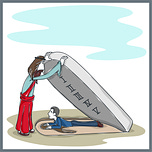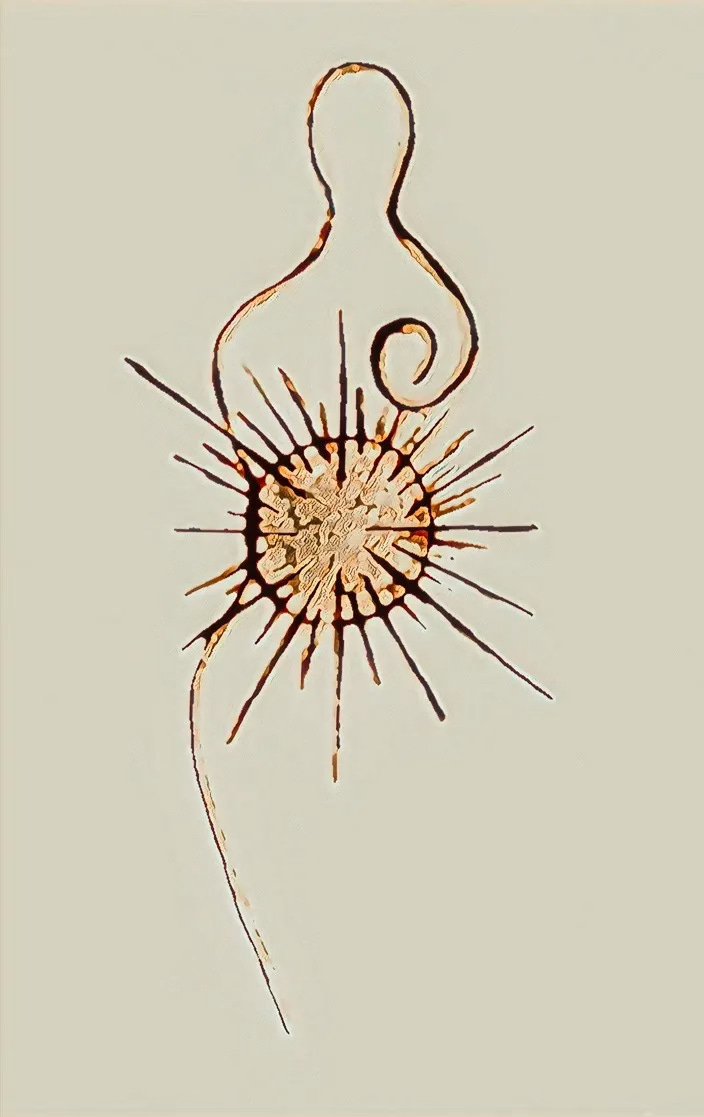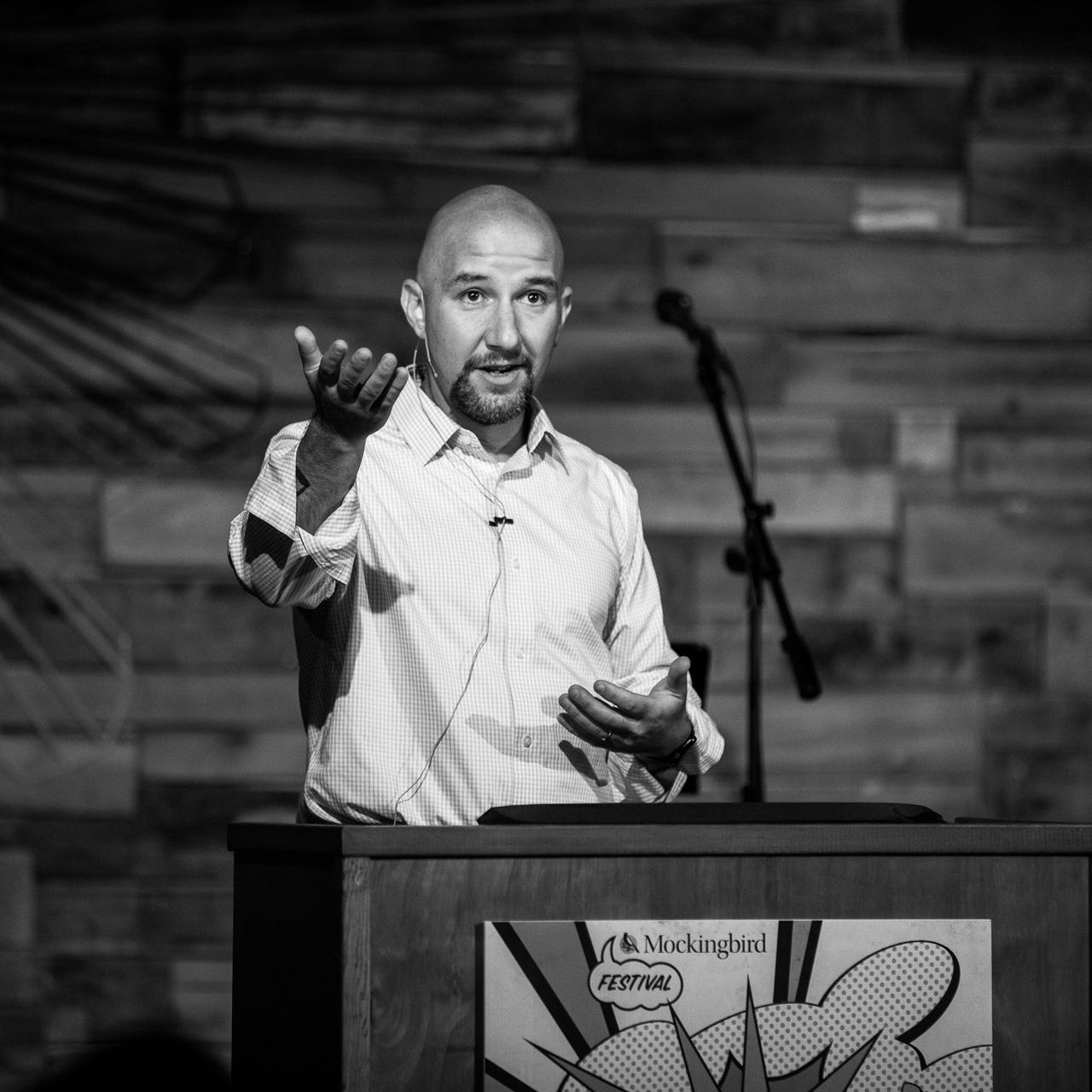I preached at Luther Memorial Church in Des Moines, Iowa this morning while I am here for the Iowa Preachers Project. The lectionary gospel passage is the sermon which follows Christ’s second passion prediction, Mark 9.30-37.
Later in the Gospel of Mark, as he watches a wealthy young venture capitalist walk away from him, having rejected his invitation to discipleship, Jesus says:
“You know— it’s damn near impossible to save rich people! You may as well try shoving a fully-loaded, one-humped dromedary through the eye of an embroidery needle.”
Martin Luther famously preached that Jesus is not a new Moses. But Jesus seems not to have gotten Luther’s memo because Mary’s boy and Pilate’s victim frequently lays down hard, harsh commandments. “If you aim to follow me,” Jesus says in the Gospel of Luke, “You’ve first got to hate your mother and father. Hate. You’ve got to hate your wife too— maybe that’s easier. For that matter, you’ve got to loathe even your life.” Here in Mark’s Gospel, on the other side of the Mount of Transfiguration, Jesus invites a crowd of onlookers, “You want to follow me? Come on then, I’ve got a cross that will fit your back too. You want to save your life? I’ll help you to lose it.”
Jesus may not be another Moses; nevertheless, Jesus is not bashful about dispensing a hard command or delivering a harsh sermon. I’m grateful, therefore, that, as a guest in your pulpit, today Jesus does not preach any of the words we wish Jesus had not preached. Instead the lectionary gives us an understandable, likable, even achievable lesson.
Jesus and the disciples are on the way from the Transfiguration and on the way to Calvary. When they arrive at their base of operations in Galilee, Jesus asks them about the conversation to which they had not invited him. For once, Peter keeps his mouth shut. The twelve all respond with red-faced silence because they had been disputing which of them is New Moses Material. Jesus responds to their prideful bickering by saying, “Whoever wants to be first must be last of all and servant of all.” And, taking a child in his arms, Jesus says, “Whoever welcomes one such child in my name welcomes me, and whoever welcomes me welcomes not me but the one who sent me.””
In Matthew’s version, the disciples do not argue among themselves but ask the embarrassing question flat out. “The disciples came to Jesus and asked him,” Matthew writes, “”Who [among us] is the greatest in the Kingdom of Heaven?” And taking a child, Jesus said, “Truly I tell you, unless you change and become like children, you will never enter the Kingdom of Heaven.””
Again, Jesus preaches harder, harsher sermons in the Gospels than the one he delivers today, “If you’ve even thought about that woman in a PG-13 way, then you’re already guilty of adultery.” “Sure, you loved your Old Man, but let the dead bury the dead. You— go and proclaim the Kingdom of God.”
You roll the dice when you invite Jesus to be your guest preacher.
The Gospels are “a mass of strange delights.”
Thus, at first I felt relieved to learn that in our Gospel passage today the Lord speaks a word we can receive as easily and agreeably as scooping up a fat, powdered baby into our embrace. After all, who is not an easy mark for such an innocent one? Whose heart and arms are closed to children? Who would not welcome the opportunity to become like a child?
Jesus is not allergic to hard, harsh sermons— mind-confounding, world-upending, virtue-erasing sermons. Fortunately this is not one of them. Or so I first thought. But then, I remembered my visit to the oncologist two weeks ago.
For nearly a decade I have suffered a rare, incurable cancer in my marrow. After a harrowing initial year of surgeries and treatments, my doctors have kept it bay over the years with periodic installments of “maintenance chemo,” a euphemism that masks the fact that what is being maintained is my life.
A few weeks ago, I noticed a lump on my neck.
A couple of days later, I found more on my throat and the back of my head.
The next day, I traced the ones that had swelled on my groin.
Two weeks ago, my oncologist had me sit down on the examining table. She snapped on rubber gloves and began to move her fingers over my body like she was reading Braille. As she did so, I felt my heart start to race. Beads of sweat broke out across my forehead. My pulse quickened. When she finished checking the lymph nodes on my groin, I sat up and almost fell over, feeling dizzy and short of breath. As she pulled off her gloves and sat down on the round, wheeled stool to wake the computer and look at my lab work, I mumbled with alarm, “I don’t— I don’t feel so good. I think I’m sick.”
And she stood up.
She looked at my blanched face and felt my sprinting pulse.
“I don’t think you’re sick,” she said with a kindergarten teacher’s empathy, “I think you’re having a panic attack.”
Just like that, in a way that frightened me, I started to whimper and cry.
I’ve written two books about my cancer ordeals. One of which, a patient was reading in the waiting room that afternoon; she even asked me to sign it. I was the keynote speaker at the American Cancer Society’s annual meeting. As I tell my kids, I’m kind of a big deal. Not to mention, I am a professional Christian who proclaims every seventh day that Death does not have the last word.
I’ve built an entire public persona around the pretense, “I’ve got this.”
Nevertheless!
One little word, recurrence, felled me.
And as my blood work materialized on the computer screen, my oncologist wrapped her arm around my heaving shoulders like I was a boy in trouble on the playground.
“I was kind of a big deal,” I mumbled to her.
“Sshh,” she consoled like a new mother, “Sssh. It’s going to be okay.”
I nodded and tried to catch my breath and wiped my eyes and my nose, clinging to her grown-up promise like I was a child.
“Truly I tell you, unless you change and become like children, you will never enter the Kingdom of Heaven.”
Maybe this word to the bickering disciples is thornier than it first appears.
In Thesis XVII of his Law and Gospel lectures, C.F.W. Walther comments on this passage from Mark:
“If this were not in the Bible, we could hardly believe that the apostles went around like little children, saying, “I am the greatest!” “No, I am the greatest!”
Nonetheless, the topic of greatness in the Kingdom is not as absurd or selfish as it first sounds. After all, Peter and the sons of Zebedee have only just witnessed Christ's metamorphosis on the mountain. Suddenly atop Mount Tabor Jesus was transfigured before them into whiteness and lightness and brightness, and Moses and Elijah appeared by Jesus’s shimmering side.
Peter’s frightened response is the tell, revealing that the three disciples recognize Jesus’s true identity, “Rabbi, it is good for us to be here; let us make three booths, one for you, one for Moses, and one for Elijah.” Booths. Tabernacles. As in, the Feast of Sukkoth, the Jewish harvest festival. In other words, they glimpsed that Jesus of Nazareth is the glorified Christ, the Lord of the End-time harvest.
If Jesus is about to bring in the harvest and usher in the Kingdom, then it may be presumptuous but it's not ridiculous for the disciples to wonder about their rank in it.
And give them credit! When they ask Jesus which of them is the greatest, they pose their question about the future Kingdom in the present tense, “Who is the greatest in the Kingdom?” In the following chapter, Mark makes clear that James and John, the sons of Zebedee, are still dwelling on Christ’s Transfiguration. They request that Jesus give them the spots they saw on the mountaintop. “Grant for us to sit, one at your right hand and one at your left in glory,” they ask him. That is, they’re asking the Sukkoth Lord to tap them to be the New Moses and the New Elijah.
Which of us is the greatest in your Kingdom?
And Jesus pulls at his hair and hollers, “You’re not New Moses material!”
No.
Instead, in a verb unique in the Gospels, Jesus takes a child into his arms and he tells them the station they seek in his Kingdom starts with welcoming such a one as this child. In Matthew’s version, Jesus adds that line about becoming like children. But Mark and Matthew, though different, do not disagree. After all, by the strict logic of ancient hospitality, to welcome another is to condescend to that person’s level, putting oneself on the same status plane as the other. To welcome a child, therefore, is to identify as a child.
You think you’re kind of a big deal?! You think you’re New Moses material?! No! Here— take this kid. That’s who you are. If you want what I have to offer, then you first have to know yourself.
I realize I took a homiletical risk, telling you about my cancer. Maybe you stopped listening there. To date, I’m still waiting on some scans. I don’t know if everything is going to be okay. I do know that afternoon in my oncologist’s office two weeks ago cured me momentarily of what Jesus suggests truly ails me.
Macrina the Younger was the sister of the ancient church fathers, Basil of Caesarea and Gregory of Nyssa. Macrina gained notoriety herself in the middle of the fourth century. At all times but especially during famine or plague, Roman custom permitted parents to abandon their unwanted infants— girls usually— in refuse dumps.
Children were thrown away like trash.
Mother Macrina toured the dumpsites, rescuing rescuing forsaken children and raising them as her own. The Didache, a first century manual for ordinary Christians, likewise instructed disciples to do as Macrina had done.
Which is to say, in the empire of his day, the child Jesus takes up into his arms was as disposable as used coffee grounds or old DVDs.
As my teacher Donald Juel comments on the child in this passage, “We should not move too quickly to the symbolic.” At the time of the Gospels, children did not epitomize innocence or purity or the possibility of the future. Children instead represented rock bottom on the social and economic scale. Children were property until they were old enough to produce for the family. Children were lower even than slaves, and thus disposable in a way not even slaves were expendable.
“Truly I tell you, unless you become like children, you will never enter the Kingdom of Heaven.”
Christ’s sermon is not as saccharine as it first sounds.
You think you’re kind of a big deal?! You think you’re New Moses material?! You’re not getting into my Kingdom until you realize you’re starting below the first rung— with the used cartons of milk and the torn sofas and the children.
That is:
Christ’s sermon to the bickering disciples is not an exhortation.
Show hospitality to kids or else!
Christ’s sermon is an intervention.
You need to know your need!
In one of my first congregations, I had a parishioner who dressed up as St. Nicholas for the children’s story every Christmas Eve. Shortly before I departed that congregation, Steve had a massive stroke. Only months before his stroke he’d been found out by his wife and daughters. They discovered a statement for a credit card they didn’t know he carried. For years he’d been keeping and hiding a whole other family. Turns out Santa was near the top of the naughty list.
Both women were with him when I arrived at his hospital room, his wife and his other.
“Princeton Theological Seminary didn’t prepare me for this,” I thought as I stepped up to his bedside.
The once proud Wall Street hot shot was wearing a catheter and a diaper. His Sunday morning facade had fallen away as the evidence of his sin sat in the chair next to his wife, who wiped the corner of his mouth of the baby food she’d been spoon-feeding him. His words were no more reliable than a toddler’s.
He struggled for what felt like a lifetime to get the word out.
But when he finally did he asked Jesus for something he never would have asked when he didn’t need someone to wipe him.
“Fffffff,” he mumbled.
He was asking for forgiveness— for “the forgiveness.”
He’d been a big deal in the church, a lay leader, chair of the worship committee, sang in the men’s choir, dressed up as St. Nick every Advent.
A little word, stroke, had felled him.
And now he was at the bottom of the ladder staring up, knowing his need.
“Fffffff…” he begged again.
I stepped closer to Steve’s bedside. I made the sign of the cross in the air, and I said, “In the name of Jesus Christ, I declare unto you the entire forgiveness of all your sins. You are just for Jesus’s sake.”
When I was done, he cried like a child waking from a nightmare.
In Thesis 18 of his Heidelberg Disputation, Martin Luther wrote:
“It is certain that we must completely despair of ourselves in order to become fit to obtain the grace of Christ.”
In other words—
Give up the guise. You don’t got this. You’re not New Moses material. You don’t even need to be; all you need is your need.
The last child to appear in the Gospel of Mark is the little girl by the charcoal fire outside Caiphas’s house who finally fells Peter from his pretensions to be New Moses Material.
“You also were with Jesus,” the little girl remarks.
“I do not know the man.”
The third time is the charm.
When Peter hears the final crow of the cock, Mark reports that “Peter broke down and wept.”
Like a newborn still attached to the cord.
Peter finally knew his need.
He finally knew he’d have to rely on the Father’s only child, who, though he was first in everything, made himself last in order to receive into his Kingdom those who would discard him in a garbage dump called Golgotha.
After I gave Steve the absolution, I stuck around for a few minutes.
“If he makes it out of here,” I said softly to his jilted wife, “He’s going to require care.”
She nodded like she’d already considered it, “I’m going to take care of him.”
“Are you sure?” I asked, “That’s going to be a lot of work, like taking care of a little kid. You sure you’re up for it? He doesn’t even deserve it.”
“Maybe not,” she admitted, “And no, he doesn’t. But after all this, I need Jesus. And the way I figure it— just as surely as he is present in the loaf and the cup, Jesus is going to be present right here. With him.”
And she pointed at her diapered husband who was now fast asleep, swaddled in his hospital bed.
Christ’s sermon is not as simple as it first sounds.
But his sermon is still gospel not law.
Therefore, let me hand over the goods.
In the name of Jesus Christ and by his authority alone, I promise you:
Whoever has knowledge of their need, has Christ, that’s what Jesus is preaching in verse thirty-seven. And whoever has Jesus has God. Whatever you’re going through, you’re not going through it alone.
So come to the table.
This is where your need and Christ’s presence reliably intersect.
Just so, this is where you become like children again.
As Luther said, this is the gate of heaven.


















Share this post